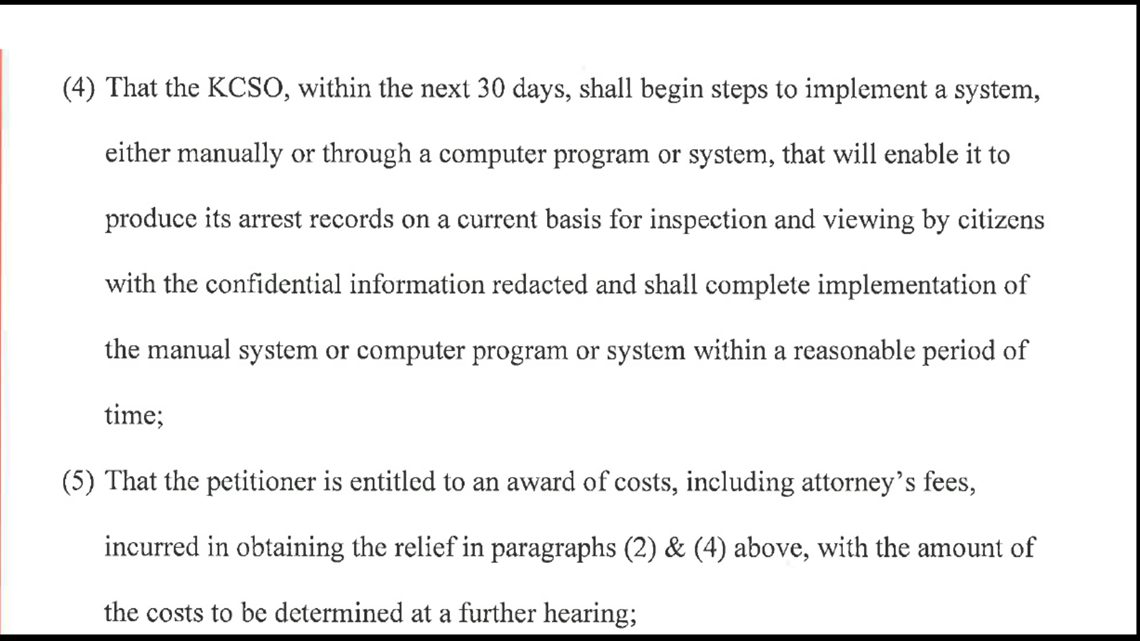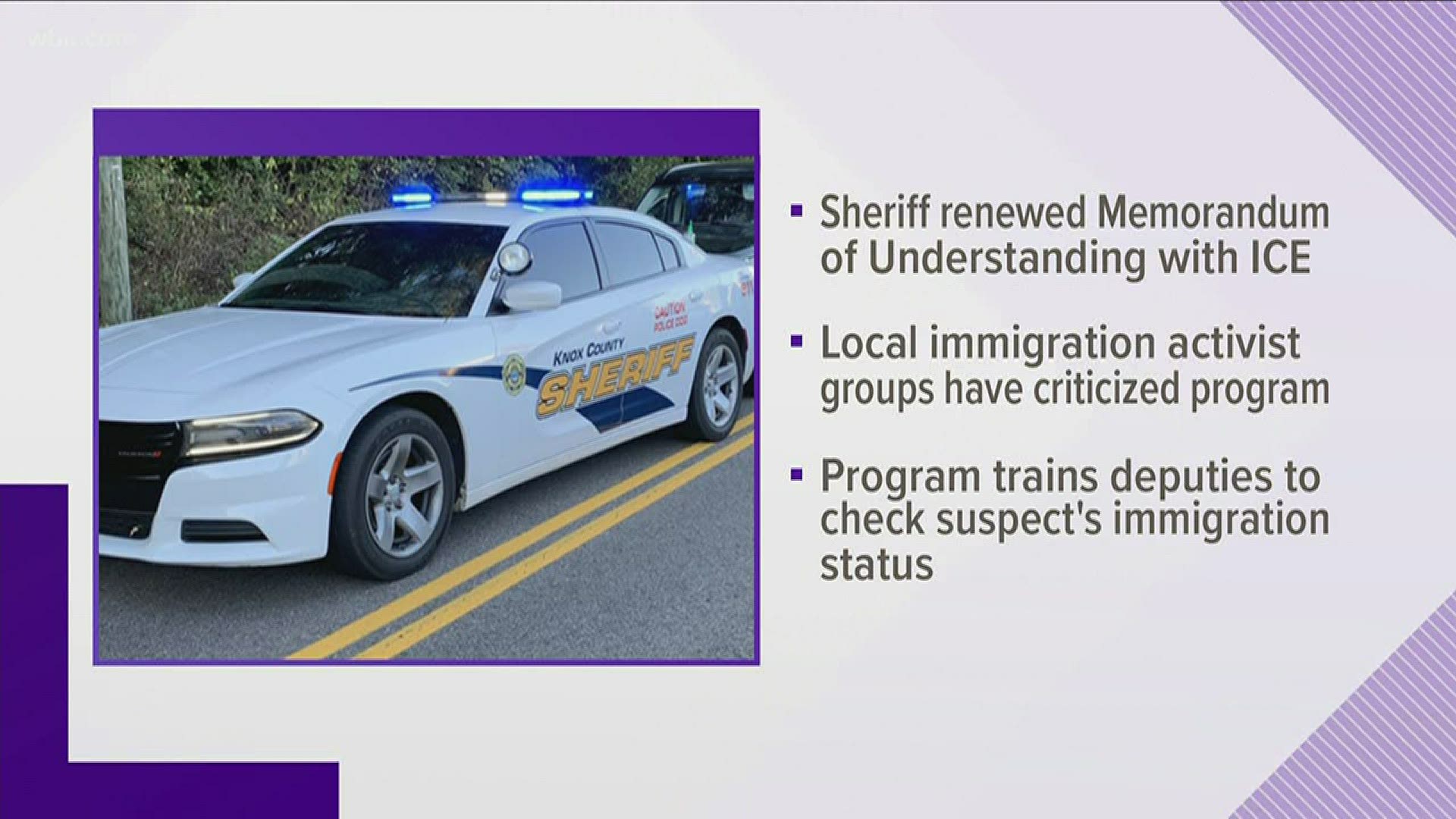KNOXVILLE, Tennessee — The Knox County Sheriff's Office says it will not challenge a chancellor's order that it do a better job of responding to public records requests. But it's got a couple questions about Chancellor John Weaver's April instructions.
The Knox County Law Department, acting on behalf of the Sheriff's Office, said in a May 8 filing that it needs clarification on how it's supposed to respond to vague and broad inquiries from the public. It also disputes whether county taxpayers are on the hook for some attorneys fees in the case.
The public may end up forking over $59,000 to cover legal fees in the fight.
University of Tennessee Sociology Professor Meghan Conley sued in 2019 in Knox County Chancery Court over access to some records she sought about the Sheriff's Office's agreement to cooperate with the federal government in tracking the detention of illegal immigrants. She's been researching the subject for years.
KCSO is working with ICE, or Immigration and Customs Enforcement, and Sheriff Tom Spangler has this month renewed a formal agreement with the government to continue that in the coming year, according to spokeswoman Kimberly Glenn.
Conley's lawsuit showed she went back and forth through the years with sheriff's lawyers and records personnel about various things she sought, including arrest records and email correspondence among some department staff.
She got some records; she didn't get others. They responded to some of her requests; they didn't some others.


In some instances, the Sheriff's Office said it had no way of getting her what she asked for. It basically told Conley that arrest reports weren't available for inspection, Weaver found, when in fact they are public records. At times, they willfully kept information from her, Conley argued.
During the course of the court fight the issue of charging for redacting records before public inspection also arose. Generally speaking, governments in Tennessee have been prohibited from charging someone to redact a record if they're just going to look at it.


KCSO didn't charge Conley for redacting any records but cautioned her that it could, Weaver said.
The dispute arose while Jimmy "J.J." Jones was sheriff and continued once Spangler became sheriff in September 2018.
It fell to Weaver to resolve an argument that he himself described as "tortuous" for multiple reasons.
Last month, the chancellor said KCSO needed to construct a formal system the public can follow to request public records. He gave them 30 days to get started.
He also ordered it to turn over internal emails from early 2019 in which KCSO personnel discussed the ICE program.
He said the county -- and thus taxpayers -- would have to reimburse Conley for attorneys fees. The exact amount must still be resolved.
Seeking clarification
"KCSO fully intends to comply with the court's direction," the county said in its May 8 filling.
But the sheriff needs clarification about how it's to proceed when it comes to what it sees as general requests for information, according to the Law Department.
In handing down his order, Weaver wrote: "...KCSO is prohibited from treating any written request for inspection or copies generally phrased in terms of information sought as insufficient for lack of specificity or detail."
How, the Law Department asks, is the sheriff supposed to respond if someone submits a request that appears too vague? What constitutes a general request for information?
"Simply stated, KCSO is unsure how to go about complying with this aspect of the court's direction," the Law Department writes.
Also, Conley's lawyer Fels has submitted proposed attorneys fees of about $57,600 and $1,500 in other costs for reimbursement in the case.
The Law Department is contesting being held responsible for having to pay part of Conley's attorneys fees that were accrued as part of the argument over inspection of jail records.
Weaver must make that call at a separate hearing.

